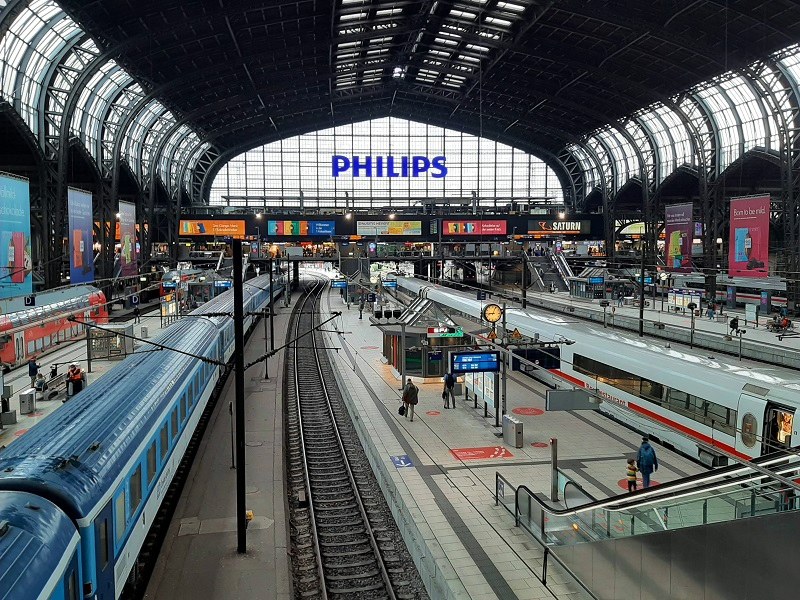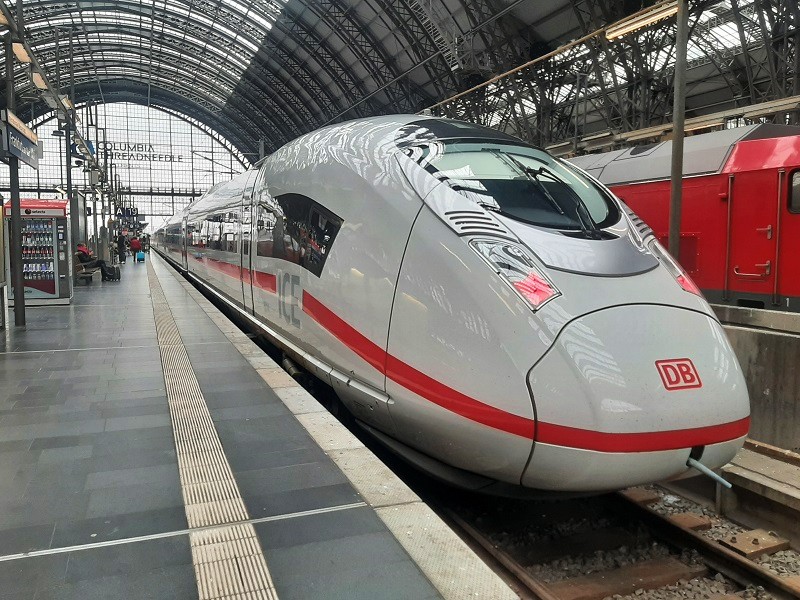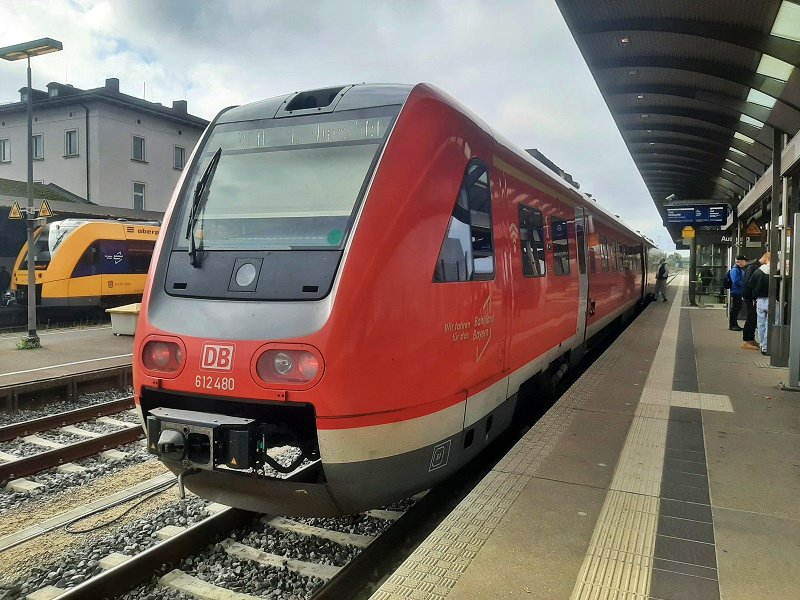Delay Hits One Third of Long-Distance Train Services in Germany
Well over a third of long-distance train services in Germany had a delay in 2024, which is the worst score in at least 21 years.
German train delays
According to punctuality data from Deutsche Bahn (DB), the German Railways, 37.5% of all long-distance trains in 2024 reached stations with delays of six minutes or more.
The delay is even greater than the previous year, as in 2023, 36% of train services in Germany were delayed by at least six minutes.
The German quality newspaper Frankfurter Allgemeine wrote that this means Deutsche Bahn “was more unpunctual than it had been for at least 21 years”.

Statistics
According to the definition used by Deutsche Bahn, a train is considered on time if it arrives at the station with a delay of less than six minutes.
For the delay statistics, the punctuality data of all ICE (InterCity Express) and IC (InterCity) trains operated by Deutsche Bahn in Germany were taken into account.
The data provided by Deutsche Bahn, which dates back to 2003, shows that the best year was 2004, when only 15.7% of all long-distance trains were delayed.
Although the trend of growing delays has been ongoing for two decades, it is only in the last few years that the situation has truly gotten out of control.
In 2020, only 18.2% of all long-distance trains were delayed, a figure not far off from the record set in 2004.

Regional trains
Regional and local train services in Germany performed significantly better in 2024, with only 9.7% of such trains delayed last year.
This marks a slight increase compared to 2023, when 9% of local and regional trains were delayed by six minutes or more.

Delay causes
According to a Deutsche Bahn spokesman, “80 percent of all delays in long-distance traffic are due to outdated, failure-prone and overloaded infrastructure”.
A large number of construction and infrastructure maintenance projects also caused significant train delays in 2024.
Other causes for the poor punctuality record mentioned by Deutsche Bahn included the tight labour market, which made it difficult to attract new personnel, extreme weather events such as the massive flooding in southern Germany in June 2024, and increased traffic at major hubs, which placed additional strain on already fragile infrastructure.
However, Deutsche Bahn has pledged to improve the punctuality of its trains.
The Deutsche Bahn spokesman said: “By the end of 2027, DB wants to increase the punctuality of ICE and IC trains to 75 to 80 percent.”

Mismanagement and structural problems
While outdated infrastructure in urgent need of renovation is certainly a major issue, there are other underlying causes contributing to the miserable punctuality of the German Railways.
The Bundesrechnungshof, the German Federal Audit Office, has also cited mismanagement and structural problems at Deutsche Bahn as the root causes of the current debacle.
Conclusion
German trains set a delay record in 2024, with over a third of all long-distance train services in Germany delayed by six minutes or more, the worst score in at least 21 years.
Although Germany has a reputation abroad for its “pünktlichkeit” (punctuality) and “gründlichkeit” (thoroughness), those who have frequently travelled by train through the country over the past decade know that this certainly isn’t the case when it comes to the trains operated by Deutsche Bahn!
Never miss out on travel news
If you want to stay up to date about all the latest travel news, make sure to regularly check the Paliparan website.
Or subscribe to the Paliparan Twitter, Facebook and Instagram pages to receive instant updates!

